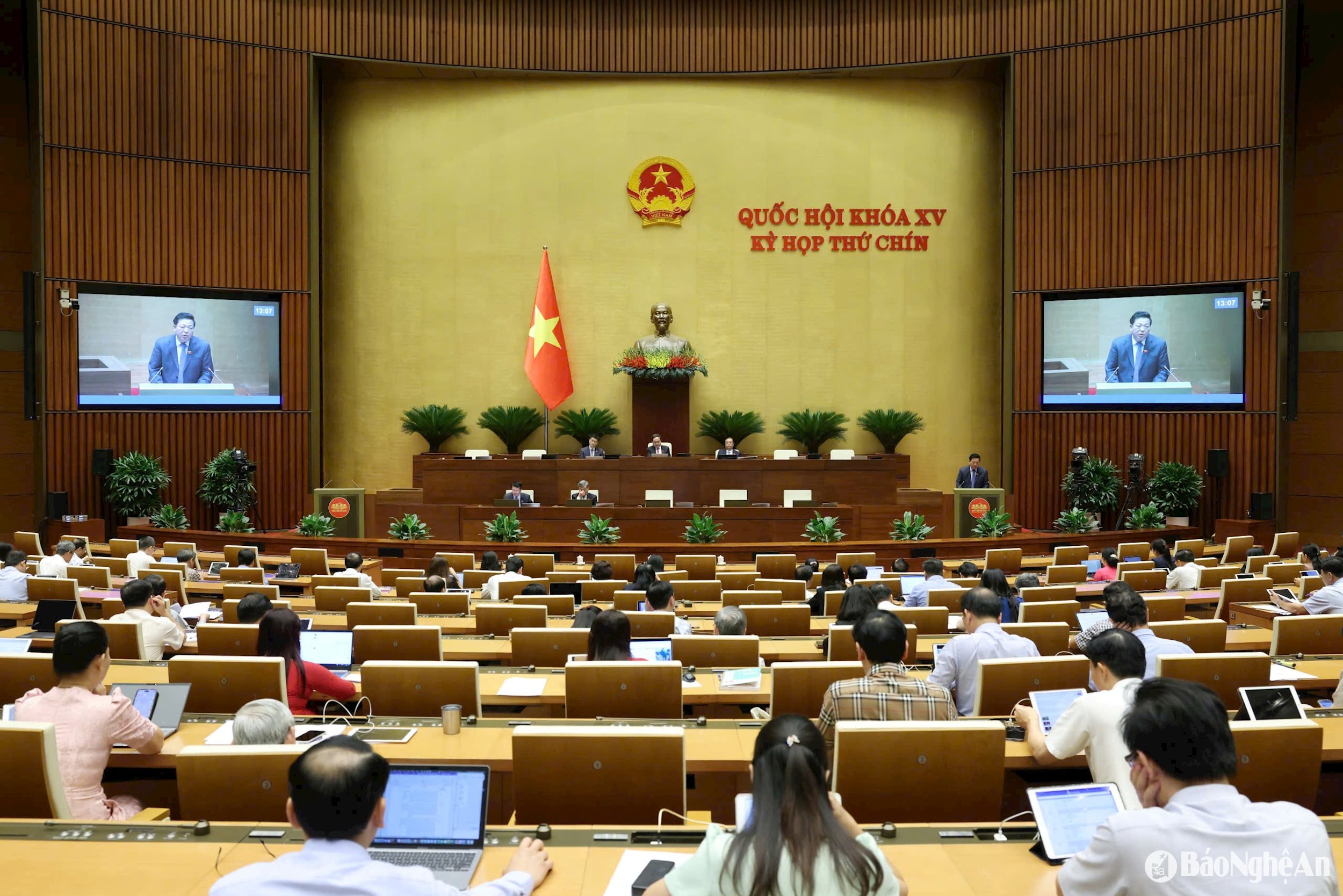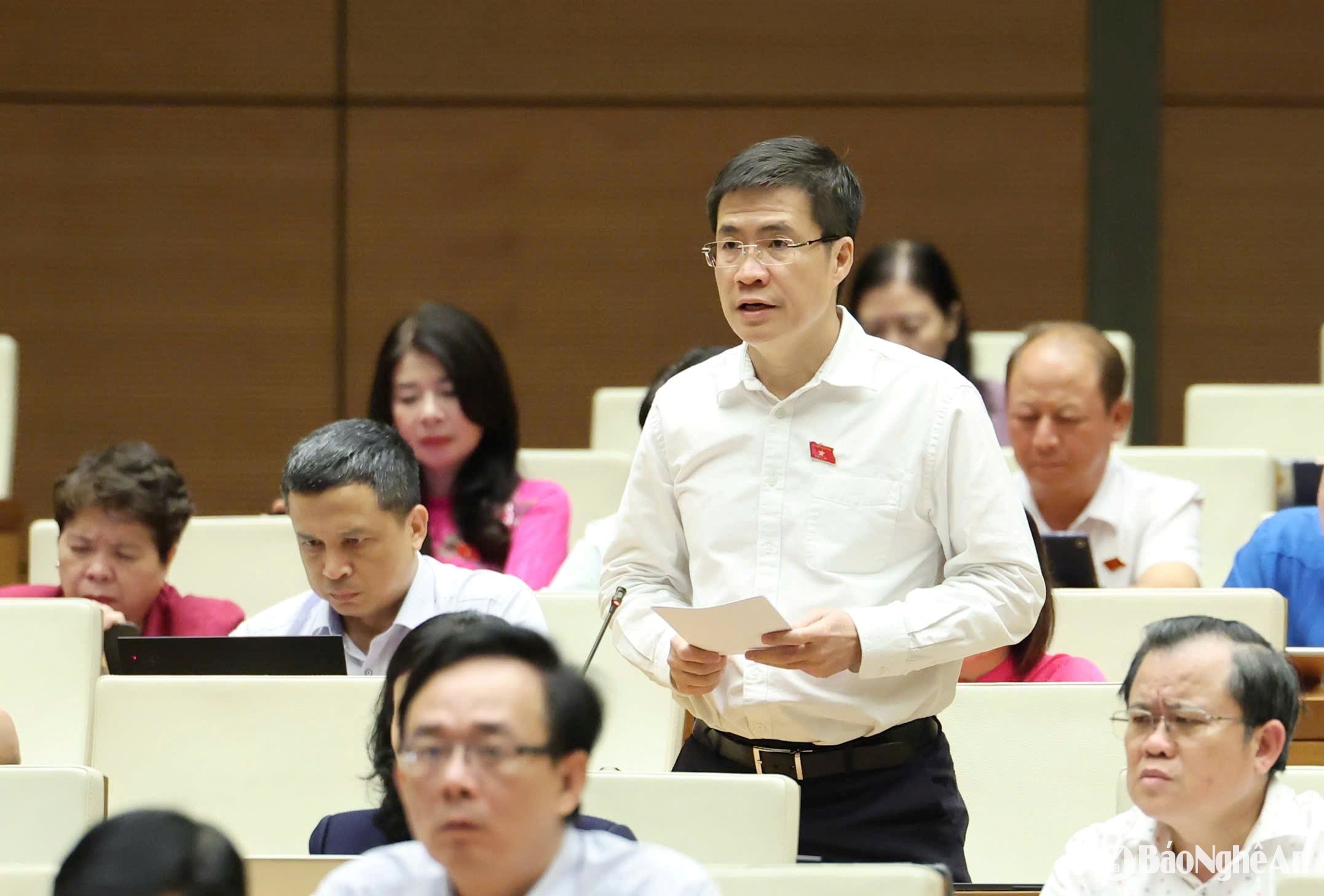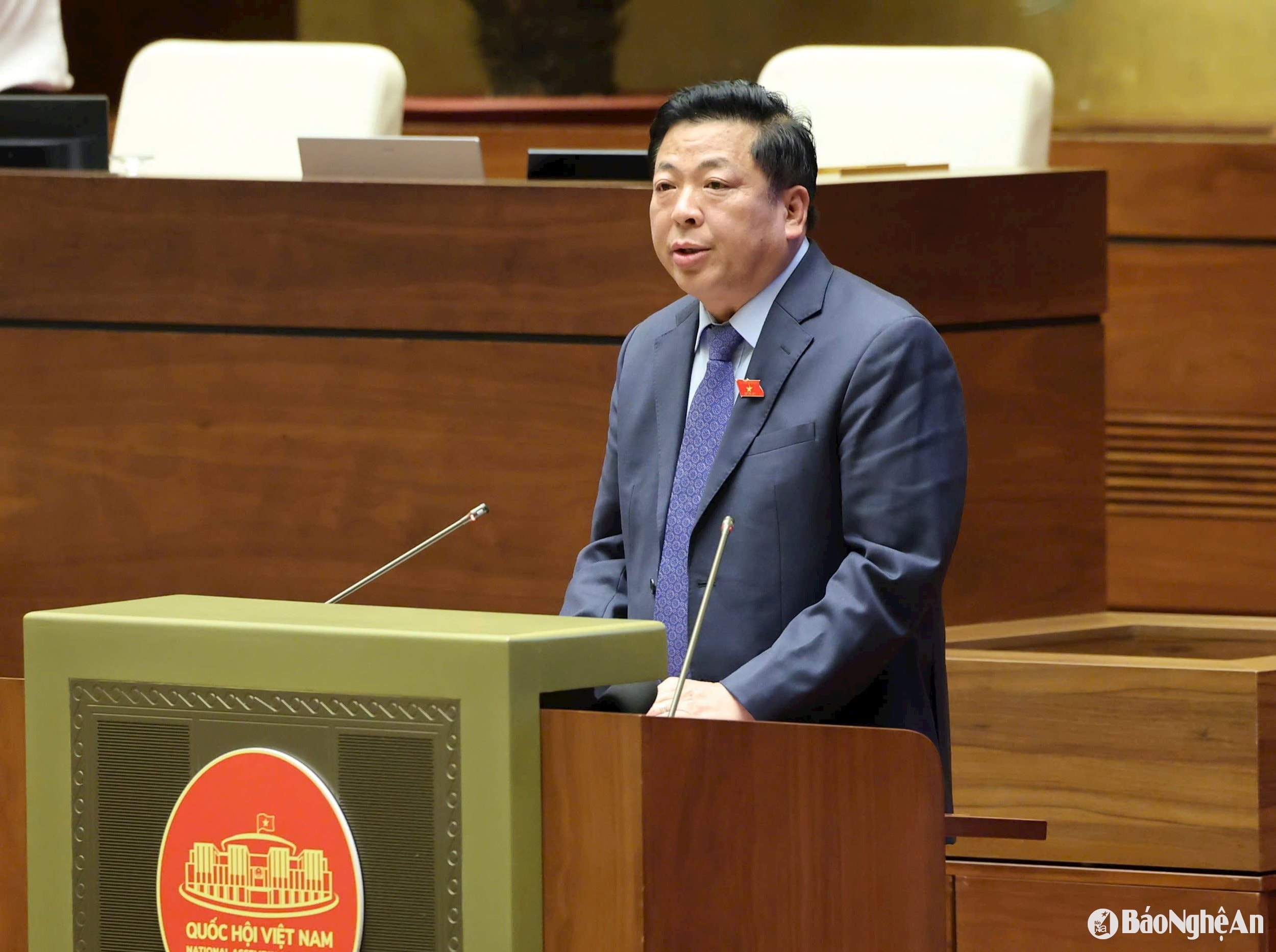National Assembly delegates from Nghe An province put forward 3 groups of opinions on amending the Railway Law.
On the afternoon of June 18, the National Assembly held a plenary session in the hall to discuss the draft Law on Railways (amended).

Delegate Hoang Minh Hieu - Member of the National Assembly working full-time at the Law and Justice Committee of the National Assembly, Nghe An delegation presented 3 important groups of opinions related to: railway infrastructure business, ensuring railway intersection safety and scope of regulation for new technology railway types.
Complete legal corridor on railway infrastructure business
Referring to regulations related to railway infrastructure business, the delegate from Nghe An said that these regulations play a particularly important role in the current context when our country is promoting the modernization of railway traffic.
This is also the legal basis to ensure the effective and transparent exploitation of public assets, while attracting all resources, both from the public and private sectors, to participate in the management, operation and maintenance of the railway system.
However, he said that the draft Railway Law updated to June 15 currently focuses on specific policies for construction investment activities, while not paying due attention to regulations on infrastructure business and railway transport business.
“Accordingly, the current draft only stipulates this content mainly in 2 clauses of Article 47: Clause 1 stipulates that railway infrastructure business is a conditional business and Clause 8 assigns the Government to specify in detail the business conditions, rights and obligations of railway infrastructure business enterprises,” he cited.

Thus, in essence, very important issues related to railway infrastructure business have not been regulated by the draft Law. Specifically, how railway infrastructure business is carried out in the case of national railway projects using both state capital and private capital. The draft Law has not yet specifically regulated the method of transferring railway infrastructure built by the investor to an enterprise for railway infrastructure business; and has not specifically regulated the rights and obligations of enterprises doing railway infrastructure business.
“Therefore, I suggest that the drafting agency review and research, paying attention to inheriting the provisions of the current Railway Law and researching the laws of other countries to supplement and perfect these contents in the draft. For example, Japanese law clearly and specifically defines 3 types of railway business including: railway infrastructure business; railway transport business and both infrastructure business and railway transport business”, the delegate commented.
The delegate from Nghe An said that these are important issues, directly related to the rights and obligations of enterprises, so they need to be regulated by law. Clearly legislating the forms of assignment, leasing, and concession of exploitation, along with a public selection mechanism and encouraging competition, will not only help improve the efficiency of using existing railway infrastructure but also create motivation to attract new investment, reduce the burden on the state budget and promote the development of the railway industry in a modern and sustainable direction.
Proposal to assign local authorities the responsibility to eliminate self-opened walkways
Commenting on the issue of railway safety, delegate Hoang Minh Hieu noted that the current Railway Law and the draft Law submitted to the National Assembly are among the rare laws on railways that have provisions defining self-opened passages, while this is a violation of the law.
In fact, according to statistics, there are currently more than 3,200 self-opened crossings nationwide, accounting for 68% of total intersections, which are the cause of more than 40% of railway accidents in recent times, including very serious ones.
However, through research, delegates believe that the draft Law does not have strong policies to solve this problem. Point c, Clause 3, Article 56 and Clause 5, Article 60 still only regulate the settlement and handling of self-opened paths with an indefinite itinerary, similar to the policies in the current Railway Law passed by the National Assembly 8 years ago.

Therefore, to solve this problem, the delegate recommended not to include the concept of self-opened walkways in the clause explaining the terms, but only to stipulate that self-opening a level walkway across a railway without permission from a competent authority is strictly prohibited, and accompanied by strict penalties.
At the same time, in the context of implementing a two-level government, he proposed to amend Article 56 in the direction of assigning the grassroots authorities where railway lines pass through to take primary responsibility for removing self-opened passages within a certain period of time, for example, within 1 year from the date this law comes into effect.
The delegate also proposed to amend the provisions in Article 60 of the draft Law on assigning the Government a roadmap to research and build intersections with existing railway lines to create conditions for people to travel safely and conveniently, effectively serving their daily lives.
“We believe that thoroughly resolving these problems is an important basis for us to confidently deploy the construction and operation of high-speed railway lines in the future in a safe and effective manner,” said delegate Hoang Minh Hieu.
Delegate Hoang Minh Hieu said that the draft Law on Railways (amended) is still focusing mainly on traditional railway types with standard or narrow gauge; it has not clarified whether the outstanding policies and guidelines as stipulated in this draft Law can be applied to railway construction investment projects according to some new railway forms or not.
Meanwhile, if this issue is not clearly regulated, a number of proposed railway construction projects applying specific technologies such as monorail urban railways, suspension railways, light rail trains, driverless automatic trains, etc., which are being researched by a number of centrally-run cities, will be difficult to implement in the near future.
Therefore, the delegate suggested that the drafting agency study and add to the draft Law provisions on the application of this law to railway projects applying new and specific technologies to facilitate implementation, especially for models that are suitable for urban areas in Vietnam today.
On the same afternoon, the National Assembly voted to pass: Law amending and supplementing a number of articles of the Law on Economical and Efficient Use of Energy; Law amending and supplementing a number of articles of the Law on Product and Goods Quality.
